Director: Takanori Tsujimoto
Writer: Takanori Tsujimoto
Cast: Mitsuki Koga, Yoshiyuki Yamaguchi, Masanori Mimoto, Kentaro Shimazu, Kazuki Tsujimoto, Ema, Kensuke Sonomura, Masaki Suzumura, Naohiro Kawamoto, Marc Walkow, Yasutaka Yuuki, Takashi Tanimoto
Running Time: 88 min.
By Kelly Warner
Bushido Man: Seven Deadly Battles kind of surprised me. I wasn’t expecting much from the film — the average ratings are weak, the title is silly, and the plot description is somewhat generic. However, less than five minutes in we’re introduced to a martial arts master with the most cartoonish mustache imaginable – and the master’s key advice to his pupil is that to know his enemy, he must eat like his enemy. It’s pretty obvious from the get-go that the next 90 minutes are about to get weird and that the movie is something far stranger than its title, plot description, and cover art could ever hope to suggest.
Our hero Toramaru (Mitsuki Koga) is something of a modern-day samurai. He travels all over Japan to fight the greatest warriors of multiple fighting styles so that he may take their mysterious, priceless scrolls back to his master Gensai (Yoshiyuki Yamaguchi). As the movie begins, Toramaru has returned to Gensai and tells each fight story to his master. Before each bout, Toramaru followed his master’s advice and pigged out on whatever food best represented his opponent’s spirit. It’s silly, but that’s just what kind of movie this is. Toramaru is essentially a copycat fighter: he comes to know his opponents so completely that he adopts their strengths, styles, and favorite foods in order to vanquish them.
We see Toramaru’s fights, travels, and dining experiences through flashback. On his journey he must match up with many diverse opponents, including a blind swordsman, a yakuza knife fighter, a kung fu master, and a gunslinger that loves all things American. Some of the fights are played for laughs, but the others are rather impressive, showing off athletic skill and frenetic energy.
To some extent, the film is little more than a highlight reel of various fighting styles. Beyond Toramaru and Gensai, no other character receives more than a couple lines of character development. Certain actors make the best of their limited screen time – most notably Kazuki Tsujimoto as the blind swordsman – but when their fights are done, the characters are almost immediately forgotten. There’s very little substance to the film and those looking for plot or purpose should look elsewhere. However, if you come in with the right expectations, I think you can potentially find something to enjoy here.
What’s interesting is how director Takanori Tsujimoto (Hard Revenge Milly) plays things somewhat straight at the beginning, then lets his creation gradually go crazy as it passes the halfway point. Understand when I say that Gensai’s cartoon mustache and Toramaru’s all-you-can-eat training are comparatively ‘normal’ to the action we get in the final act. Leading up to the finale, Toramaru must travel to post-apocalyptic Yokohama. It’s not clear what happened to Yokohama, though endless earthquakes are mentioned and the air isn’t safe to breathe. Tanks patrol the highways, the skyscrapers are crumbling, and all gun laws have been revoked. While the locations at the beginning of the film were prettier, one almost wishes more of the movie had this strange, unexplained sci-fi feel to it. At the very least, the Yokohama segments prepare us for the finale, when the director allows his movie to truly go wild. The ending and the action that lead up to it are absolutely batshit and often hilarious. To say that the film went out on a high note would be an understatement. If the whole film shared the same kind of madness as the finale, Bushido Man might’ve been something of a new cult classic.
I wish that the director’s vision was more consistent and that his cast looked more into the production. The film has its share of goofy ideas and well done fights, but too often it feels strangely half-hearted. So while I liked it overall, I was still left wanting more from the film. The performances are one-note, plot is largely non-existent, and many scenes feel flat like they require a jolt of energy. It’s as though they bottled up that energy for the finale, when they would have been better off spreading it around a bit. If only.
There’s not a whole lot to Bushido Man, but it’s fast-paced and entertaining in a silly, cartoonish sort of way. There’s enough originality to the movie that I’m sure it’s going to win over some fans here and there. The film is definitely different and some days maybe that’s enough.
Kelly Warner’s Rating: 6/10

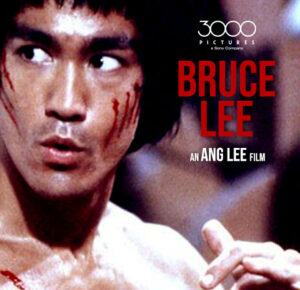
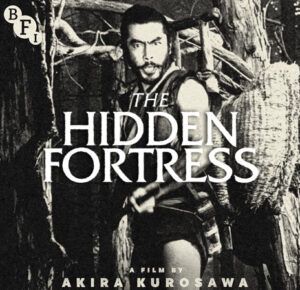
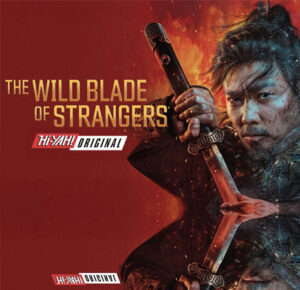
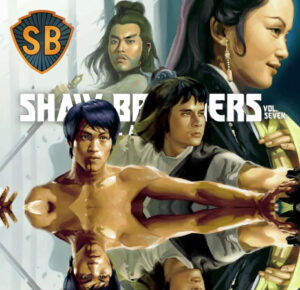







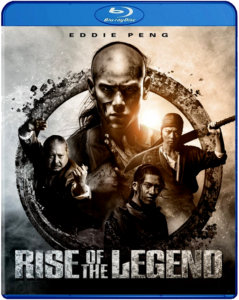









3 Comments